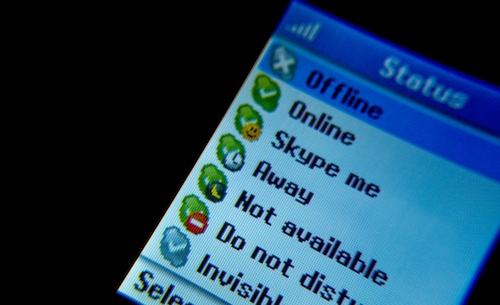
Could Microsoft’s US$8,5bn acquisition of Skype, and its plans to integrate the software into Windows Phone, its smartphone operating system, put the software maker on a collision course with cellular network operators?
Some analysts think so. Craig Moffett, an analyst at Sanford C Berstein & Co of New York, recently told Bloomberg, for example, that Microsoft’s backing of Skype may be seen as a threat by wireless carriers such as AT&T and Verizon Wireless.
“It is kind of a head scratcher to me how Microsoft is going to navigate the complicated relationships that it has to have with carriers at the same time as it is repositioning itself as a potentially major threat to their wireless voice business,” he told the news wire.
Microsoft has said it plans to integrate Skype into a wide range of its products, including Xbox Live, Outlook and Windows Phone. The company’s wide-ranging deal with Nokia could mean Skype appearing on millions of the Finnish handset manufacturer’s smartphones from early next year.
Companies like Skype are able to take advantage of the relatively low data charges on mobile broadband networks to offer cheaper calls to subscribers. Skype users are able to call each other for free from their mobile phones, incurring only operators’ data charges.
Pieter Uys, group CEO at Vodacom, SA’s largest mobile operator, says the deal adds an interesting dimension to the competitive landscape, but he doesn’t believe Skype will pose a serious threat to the company’s voice revenues in the short term.
Uys says voice-over-Internet Protocol (VoIP) will become a bigger component of traffic traversing operators’ networks, but he says the lack of standards will inhibit their adoption by end users.
“There are 18 different VoIP suppliers for mobile phones,” he says. “You can’t have 18 different clients. These things will need to speak to each other.”
Also, Uys says, only a small percentage of phones on Vodacom’s network are able to deliver a “good Skype experience”.
In Africa, in particular, it will take longer for VoIP to gain traction because fewer handsets support the technology.
However, as operators slowly migrate their networks to the Internet Protocol — the communications protocol that underpins the Internet — Uys says VoIP will become more popular. For now, though, nothing beats the convenience of a regular mobile voice call, he says.
“Will the Microsoft, Skype deal change the world dramatically and will everyone use Skype? Probably not. Is BlackBerry going to load Skype onto its phones? Probably not. As a customer experience, it’s still not nice. It’s not as easy as picking up a phone and making a call. I’m not saying it won’t take off, but it may just take a little longer in the African context.”
Alternatives to SMS may reach mass-market adoption first. MXit and BlackBerry Messenger, which use the operators’ data networks for instant messaging, have become popular among the youth because of the cost savings involved. And WhatsApp Messenger, a cross-platform mobile messaging application, has caught on like wildfire in recent months as another alternative to SMS.
Uys emphasises that Vodacom will never try to block network traffic generated by competitive services like Skype. The only time the company would block an application was if it degraded the quality of its network. — Duncan McLeod, TechCentral
- Image: Trekkyandy
- Subscribe to our free daily newsletter
- Follow us on Twitter or on Facebook




